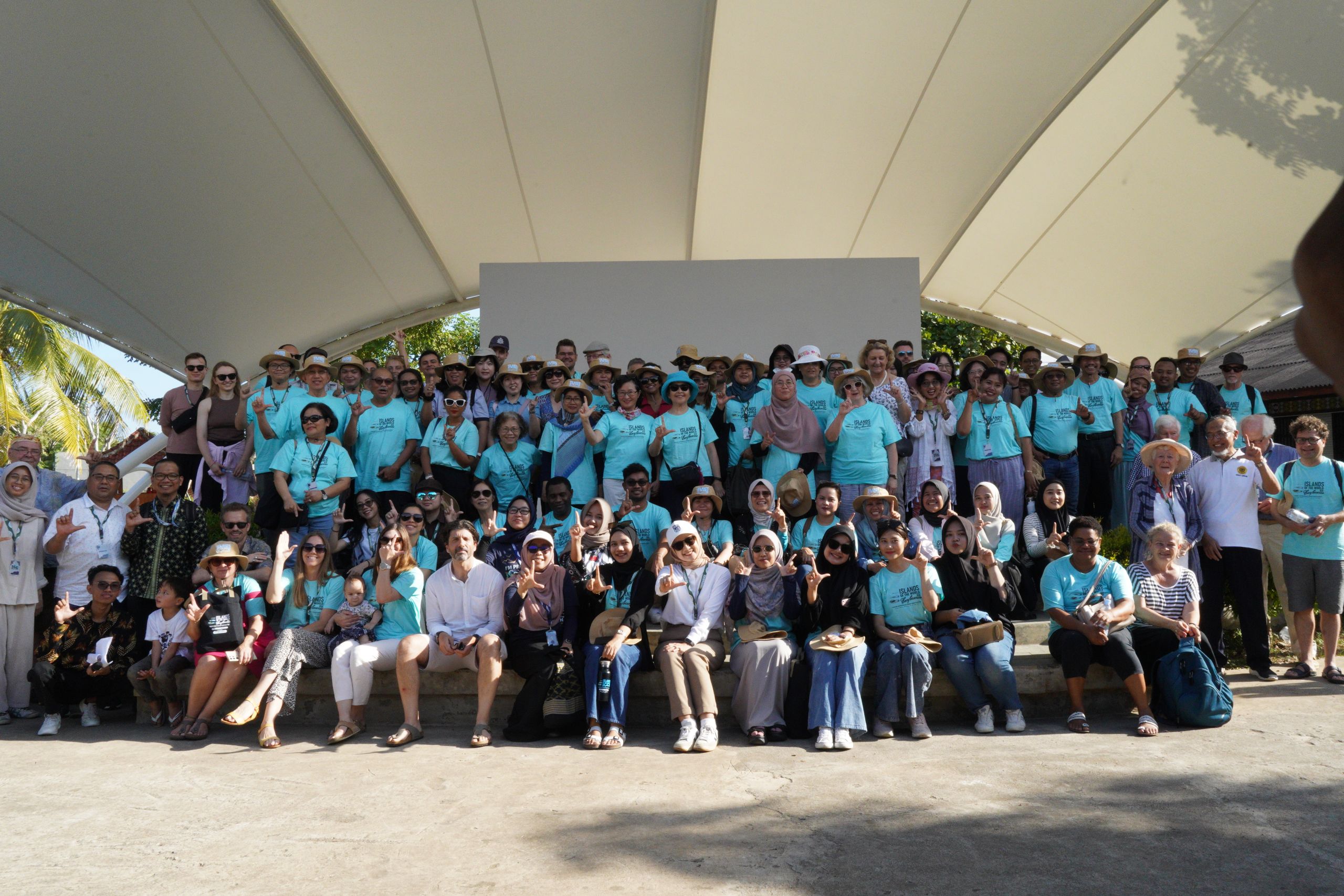19th Islands of the World Conference: Unram Highlights Tourism Development in Mandalika

Mataram, University of Mataram – In the 19th Islands of the World Conference (IWC) held at the University of Mataram (Unram), Unram showed its commitment in supporting the Sustainable Development Goals (SDGs) through active participation in the IWC plenary session on Wednesday (26/6) at Bazaar Mandalika, Kuta.
The plenary was delivered by Dr. Imam Bachtiar, M.Sc. from the Department of Biology Education, Faculty of Teacher Training and Education (FKIP) Unram. He presented material that focused on Tourism Development in Southern Lombok: Special Economic Zone of Mandalika.
The plenary session highlighted various aspects of tourism development in the Mandalika area located in southern Lombok and underlined the importance of tourism development in the Mandalika Special Economic Zone (SEZ) as a concrete steps in achieving sustainable development goals, including addressing climate change (Goal 13) and preserving marine ecosystems (Goal 14).
In this plenary session, Dr. Bachtiar shared that Mandalika, which covers an area of approximately 1,036 hectares, has been designated as a super priority area for tourism development. The project is expected to provide up to 10,000 premium-class rooms and create around 58,000 jobs with various planned facilities including a golf course, desalination plant, and wastewater treatment plant.
Mandalika offers a range of exciting tourism activities such as climbing Mount Rinjani, diving at Gili Trawangan and Gili Petagan, snorkeling at Gili Meno, surfing at Desert Point and Gerupuk, and bird watching at Kerandangan and Gili Meno. Mandalika is also the main location for the Bau Nyale cultural festival, which attracts 20,000 to 30,000 visitors annually.
One of the main focuses in Mandalika’s tourism development is ecotourism. However, there are some environmental concerns such as saltwater discharge from the desalination plant, as well as high sedimentation on coral reefs due to the construction of tourism facilities. A decline in the nyale population during the Bau Nyale festival is also a concern, along with the impact of beach lighting on the chronobiology of nyale worms.
Regular environmental monitoring is essential to ensure the protection of ecological and economic assets in Mandalika SEZ. This includes monitoring microplastics in sediments, seawater and sea urchins, as well as heavy metals, coliform bacteria and nutrients in seawater and freshwater.
Mandalika SEZ is expected to be a major driver of tourism development in the province of NTB. Sustainable tourism development should include more tourist attractions that offer new opportunities coupled with strict conservation actions. Thus, Mandalika can be a real example of how economic development, cultural preservation, and environmental conservation can work hand in hand to achieve sustainable development goals.
Through active participation in international conferences and local initiatives such as the development of Mandalika SEZ, Unram not only contributes to the improvement of the economy and tourism in Lombok, but also positions itself as a leader in efforts to preserve the local environment and culture. These efforts include various research, education and community empowerment programs that aim to create a balance between development and conservation.
Unram is committed to continuing to innovate and work together to achieve sustainable development goals, ensuring that every step taken benefits current and future generations.
